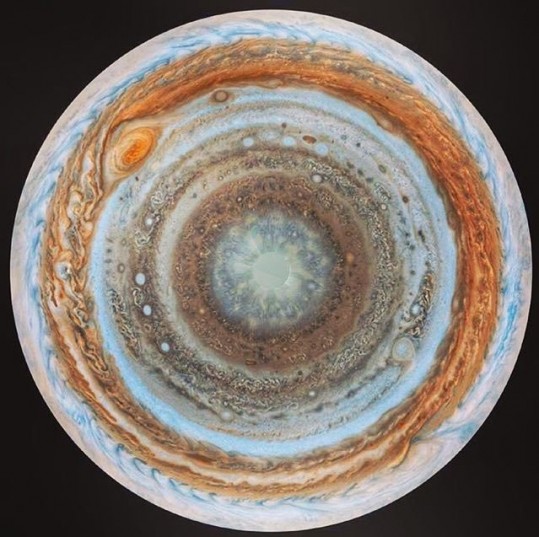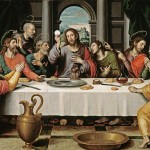
I was searching for a video on YouTube when the title of another one caught my eye:
Neil Tyson Tired of God
Now, I know a little about Neil deGrasse Tyson. I admire him, in fact. I’ve watched his version of Cosmos more than once. I listen to his podcast, StarTalk every week. I even interviewed his nephew—a great young musician–for The Huffington Post.
His views about religion—he’s an agnostic–have not diminished my respect one iota. I mean, he invites guests like oft-celebrated Catholic comedian Jim Gaffigan to join in often.
But that title gave me pause. So I decided to watch. And as I listened to the venerable Bill Moyers trying so hard to steer Tyson toward some kind of admission of some kind of faith, I started to smile.
Moyers wasn’t hearing what I heard. Tyson had, in fact, given us believers lots of great talking points for future evangelization. I’ve transcribed the very end here, to prove that point—read it carefully:
“The history of discovery, scientific discovery is one where at any given moment there’s a frontier. And there tends to be an urge for people, especially religious people, to assert that across that boundary into the unknown lies the handiwork of God. Newton even said it. This has been, over time, described by philosophers as ‘the god of the gaps.’ If that’s where you’re going to put your God in this world, then God is an ever receding pocket of scientific ignorance. If God is the mystery of the universe, these mysteries, we’re tackling these mysteries one by one. If you’re going to stay religious at the end of the conversation, God has to be more to you than just where science has yet to tread.”
If you’re freaking out right now, read that again. Because I believe Tyson has actually done us a solid. He has taken God out of the “gaps” and put God “above and beyond,” which is precisely where most of us would argue God truly belongs.
Earlier in the same video, he explains that “enlightened religious people” have always said, “Yeah, science is cool, we’re good with that, but use the Bible to get your spiritual enlightenment and your emotional fulfillment.”
Now, I know for some of you, that sounds dismissive. But my own “spiritual enlightenment” tells me something amazing. I believe that the Tysons of this world get their scientific “enlightenment” directly from the God they’re not so sure about. Which is why they’re “not so sure,” still.
Einstein “day dreamed” the theory of relativity, among other things. As a reporter for the Chicago Sun Times, I heard dozens of scientists–and writers and musicians and artists–say they felt they had “transcribed” their best work. They didn’t say Who they were listening to, but some came tantalizingly close.
In fact, even Tyson’s mentor, the late great Carl Sagan himself, refused to be labeled an “atheist,” though he often sounded like one. Except when he said things like this:
“An atheist has to know a lot more than I know. An atheist is someone who knows there is no god. By some definitions atheism is very stupid.”
There’s a surprise.
And here’s another, which made its way to my Inbox this week, not long after the Tyson video had broached this subject so compellingly. It’s from a remarkable review of Alan Lightman’s book The Accidental Universe: The World You Thought You Knew by Maria Popova.
In the book, Lightman first defines “faith” more movingly than many theologians.
Faith, in its broadest sense, is about far more than belief in the existence of God or the disregard of scientific evidence. Faith is the willingness to give ourselves over, at times, to things we do not fully understand. Faith is the belief in things larger than ourselves. Faith is the ability to honor stillness at some moments and at others to ride the passion and exuberance that is the artistic impulse, the flight of the imagination, the full engagement with this strange and shimmering world.
To illustrate those words, Lightman offers a soul stirring story about a family of ospreys who have nested in the same place near his home in Maine for many years, their comings and goings obsessively recorded by him and his wife.
One day, two baby ospreys gave Lightman the fright—and the most transcendent moment—of his life.
On this particular afternoon, their maiden flight, they did a loop of my house and then headed straight at me with tremendous speed. My immediate impulse was to run for cover, since they could have ripped me apart with their powerful talons. But something held me to my ground. When they were within twenty feet of me, they suddenly veered upward and away. But before that dazzling and frightening vertical climb, for about half a second we made eye contact. Words cannot convey what was exchanged between us in that instant. It was a look of connectedness, of mutual respect, of recognition that we shared the same land. After they were gone, I found that I was shaking, and in tears. To this day, I do not understand what happened in that half second. But it was one of the most profound moments of my life.
Lightman may not understand, but I do. He had a conversion experience. Oh yes, that was God, making “eye contact” that day. If you know what I mean, God bless you. God blessed you. And you know it.
God lives in those moments. God lives in science, too. So even when when I see an image of Saturn’s south pole created from bits of “data,” I’m mesmerized by what God did through those scientists and Saturn, both.
I’m not confused by science. My faith is confirmed by science. In fact, I’m inclined to agree, however dangerously, with Giordano Bruno, the famous heretic whose story, as related in a review of Cosmos from The Daily Kos is probably the perfect way to end today’s offering.
Bruno, following in the work of Nicholas of Cusa, surmised that there was no end to the universe, just as there was no end to God. Likewise he proposed that the planets were bodies just like the Earth, and that the stars were mobile bodies like the Sun, with planets (and perhaps life) of their own. When he presented his ideas to the Church, he was censured, stripped of his position as a monk, and eventually imprisoned on charges of heresy. At his trial, Bruno was questioned about his theory and its conflicts with church doctrine. Bruno replied:
“Your God is too small.”
My God is huge. As unlimited as Bruno’s universe, and not the least bit diminished by the discoveries of science. In fact, I have a feeling that the scientists out there who see and hear from that God every day, may know my God a lot better than they think.
God bless them, too.
Photo credit: NASA/JPL/SSI












